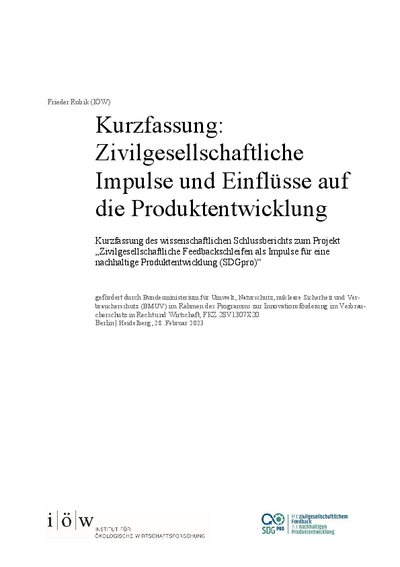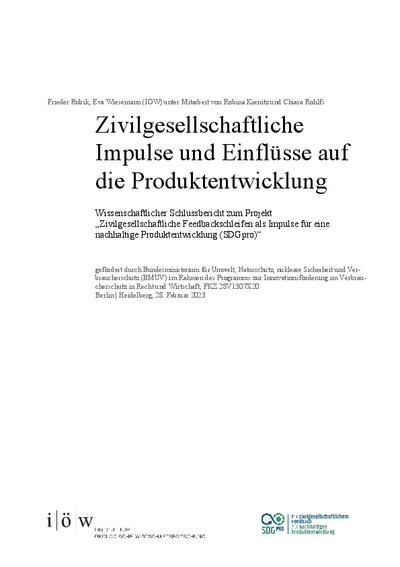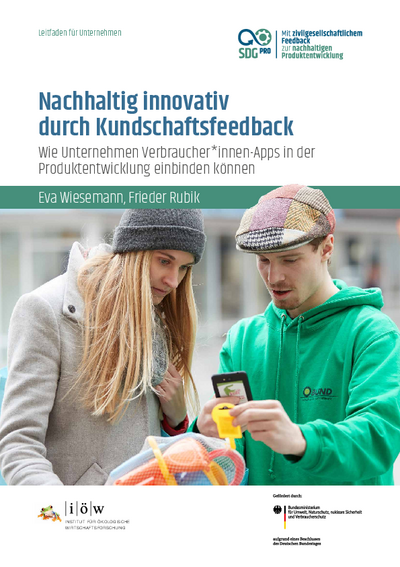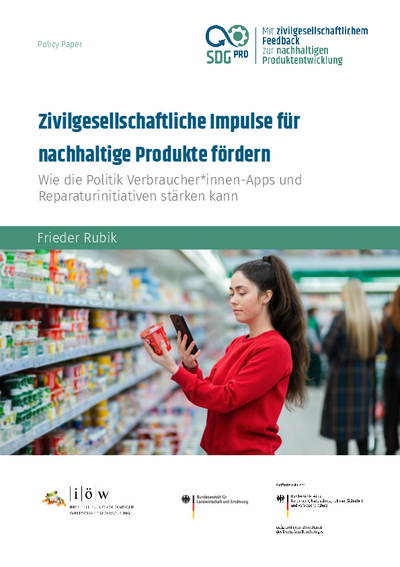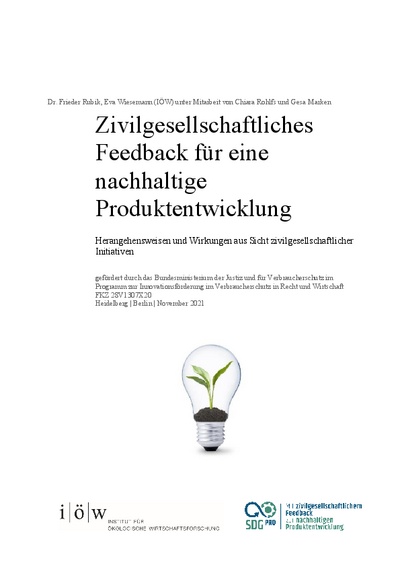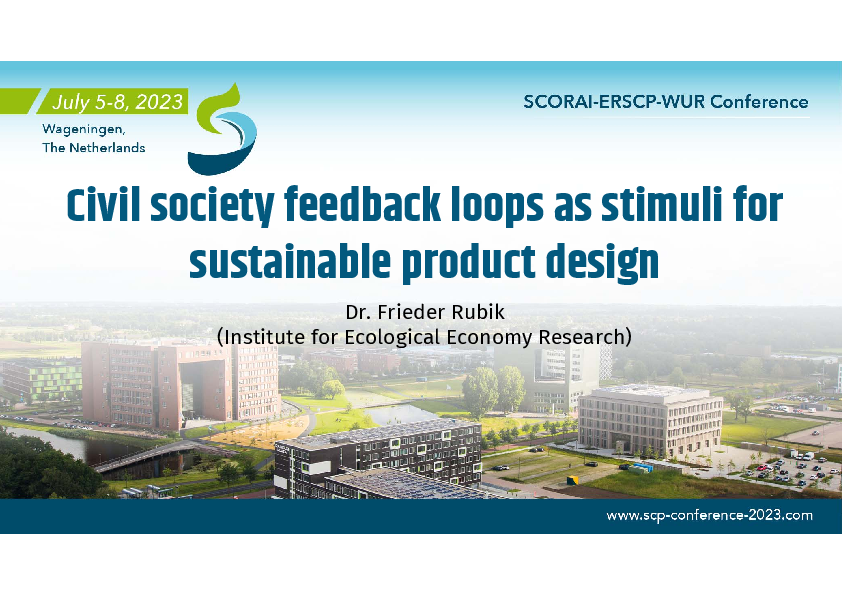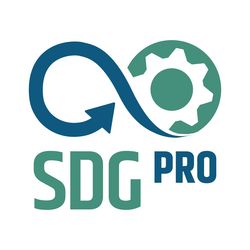Civil society feedback loops as impulses for sustainable product development A project on consumer protection in the service of the UN Agenda 2030 and the Sustainable Development Goals (SDGpro)
The project refers to the Sustainable Development Goals (SDG) of the United Nations, specifically to Sustainable Development Goal 12, and considers consumption and production as central elements of a circular economy, in which a transition from a linear economy to a circular economy takes place. The focus is on consumers. In the economic and social system, they take on a variety of roles. They are not only the ones who use and thus consume the goods they purchase. They also obtain information about the intended purchases, incorporate it into their decision-making horizon, pass on information in a targeted manner and extend product use by making use of repair services. These roles relate to individual acts of consumption and use.
The project goes beyond this and investigates different forms and types of civil society-initiated and organized pooling of experiential knowledge from product search and use, as well as the transfer of this knowledge to manufacturers. The working hypothesis is that this information feedback can generate valuable information for producers, which can provide guidelines for a stronger orientation towards sustainability in product development and design in the sense of eco-design and thus contribute to achieving SDG 12. The project examines the scope of this information transfer and classifies its potential to have an impact below the level of state regulatory intervention, with a view to its reach, and also works out possible consumer policy implications.
The project examines the use of the consumer apps ReplacePlastic, Replace PalmOil and ToxFox as well as the as the 'Round Table Repair' initiative. On the one hand, these contribute to transmitting to manufacturers the knowledge gained from experience in product use and to provide impulses to take appropriate adaptation, modification or avoidance measures in product development or design. On the other hand, they have an impact on the political level by bundling political and regulatory demands in order to make the product development of companies more sustainable.
The project investigates the scope of these civil society initiatives and derives possibly necessary political-regulatory implications.
IÖW Project Team
- Antonia Sladek
- Eva Wiesemann



